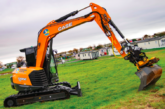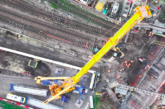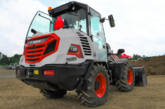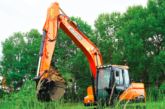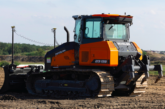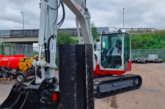What measures should you be taking to optimise your fuel storage processes? Certas Energy explains all
Tough trading conditions mean that construction businesses must keep their operations moving to optimise profits. In an industry with tight profit margins and deadlines, any dips in productivity can significantly affect a business’ bottom line – especially in the face of a sector-wide skill shortage that is pushing up labour costs. As a result, construction companies are working hard to keep machinery powered up for longer with a reliable fuel supply and effective fuel storage solutions.
The right fuel storage tank can optimise on site safety, security and productivity, all of which contribute to less downtime and reduced risk for more efficient operations. But with various storage challenges and legal requirements to consider, choosing the right solution can be difficult.
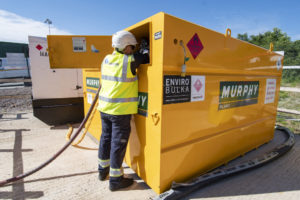
The challenges of storing fuel onsite
On congested construction sites, maximising productivity while minimising downtime can be easier said than done. When working on vast sites with huge numbers of vehicles and machinery, valuable time can be wasted if operators need to travel across sites to refuel. With different sites also come different requirements for fuel storage. A storage tank that may be accepted on one construction site may not meet the requirements of another, and lack of space for sufficient fuel storage can often be a challenge.
According to a recent survey from the Chartered Institute of Building, over 21 per cent of construction businesses are victims of theft on a weekly basis. Therefore protecting a site’s most valuable assets has become a key concern for many construction businesses. As an expensive commodity, fuel is no exception, and can often be a target for opportunistic thieves if left unsecured.
Furthermore, if a site’s fuel storage tanks are non-compliant with the government’s oil storage regulations – or are not regularly maintained – a site’s fuel supply can be at risk of costly spills and leaks. Delivery may be refused to a storage tank if it is deemed to be unsafe for refuelling, leading to longer wait times for fuel and reduced productivity.
Without a reliable supply of fuel, construction businesses risk running out – causing site operations to grind to a halt.
Keeping your site moving safely
Effective fuel storage can make everyday operations easier and more efficient by reducing costs and cutting risk. For safe, accessible and improved fuel storage, the latest technologies make it easier for businesses to move fuel across sites using transportable fuel cubes.
If site storage space is limited, stackable fuel tanks allow for greater supply capacity and safe access without getting in the way of operations. Multiple dispensing capability can also save sites time by enabling workers to fuel a generator while simultaneously filling plant machinery using the delivery gun – removing the need for multiple bowsers to refuel.
To help protect against robbery, a number of storage solutions feature built-in fuel monitoring systems that track supply levels and alert site managers to any sudden drops in fuel that may indicate theft or a leak. Many tanks also come with locks and secure storage for ports and equipment for added reassurance that fuel is stored safely.
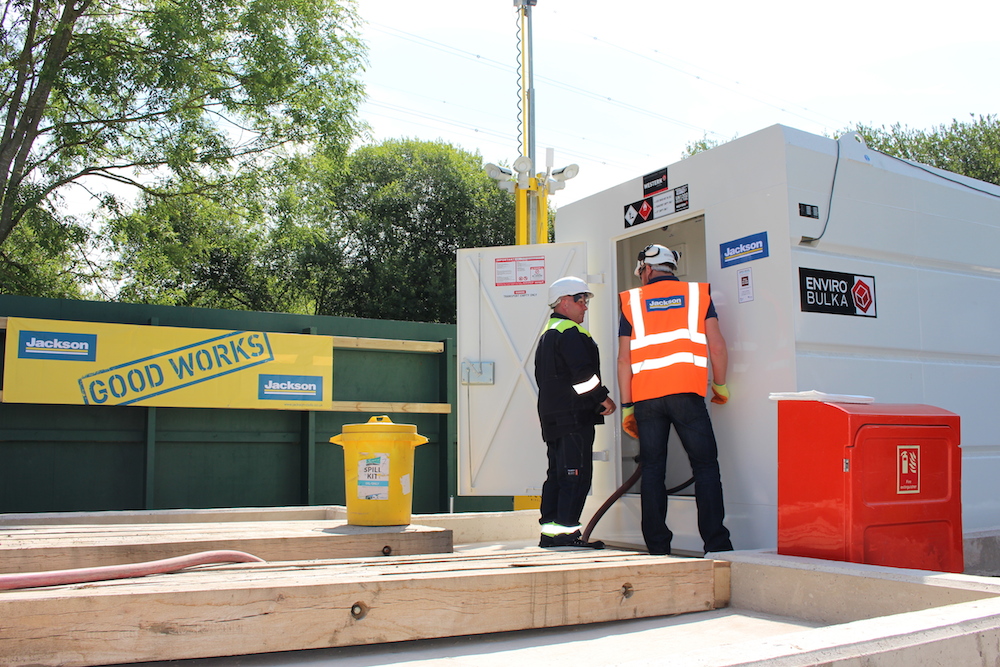
Protecting against leaks and spills
Safety is paramount and ensuring that a site’s fuel storage is compliant with regulation is vital. To avoid leaks and spills, fuel tanks must meet certain design standards and be stored away from any site operations to prevent impact damage to the tank from moving equipment or vehicles.
Tanks used on construction sites must also be bunded, or double-walled, to help protect the surrounding environment and prevent spills. Bunded fuel storage tanks feature built-in, weatherproof secondary containment that eliminates the need for drip trays by containing drops of fuel from equipment and ports, helping to give operators peace of mind when refuelling machinery.
Ultimately, prevention is the best cure when it comes protecting against spills. So it’s essential to provide training to staff on the safe handling and storage of fuel, good practice in preventing spills and leaks, and what to do in the event of a spill.
Choosing the right tank for your site
Having a robust storage solution in place is key to saving time on site, faster refuelling and protecting your fuel supply against leaks and theft. However, with so many different options on the market, from high-end bunded commercial tanks to durable dispensing tanks, it can be difficult to find the best storage solution for your requirements. That’s why it’s important to seek out expert advice and support before selecting a new storage solution to ensure your purchase is safe, functional and fully compliant.
Fuel storage needn’t be stressful. With the right tank and supplier in place, businesses can work safely in the knowledge that there will always be fuel on site to keep plant machinery moving.


